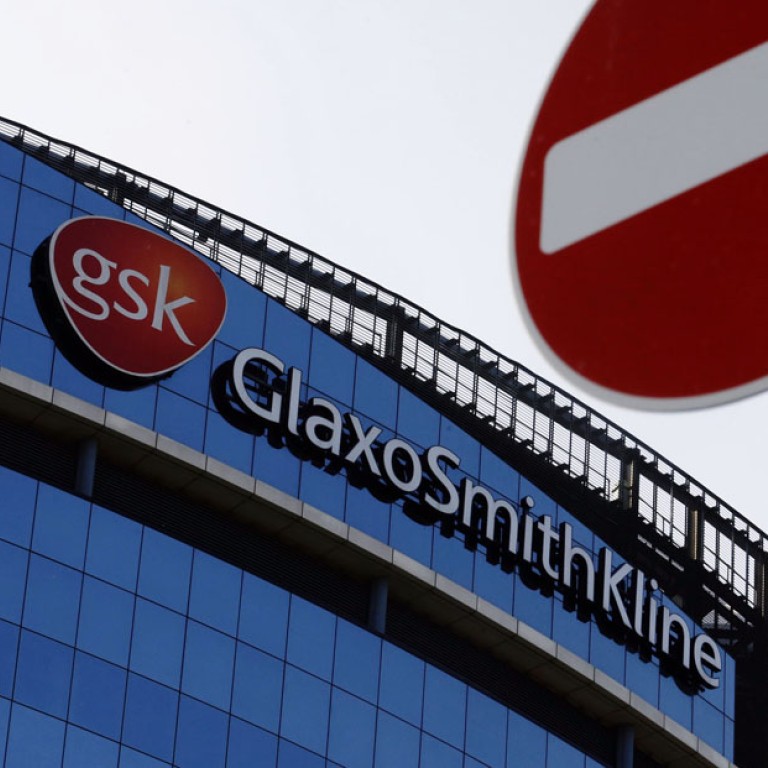
GSK graft 'nationwide and systemic', state radio cites saleswoman as saying
Saleswoman for drugmaker says it logged every visit to doctors, whose leisure activities the firm funded with money recorded as seminar fees
A saleswoman for drugmaker GlaxoSmithKline (GSK) has told state media the company's corrupt activities in China were nationwide and systemic, not an isolated case of a few bad apples as portrayed by GSK chief executive officer Andrew Witty.
If the allegations are true, it may increase the UK drug giant's chances of being charged under the UK Bribery Act.
"This case is not just the acts of some of the senior management in GSK's China operations, but a long-established operating model," said a radio report.
China National Radio quoted the saleswoman, who only gave her surname, Wang, as saying that the company gave every sales representative a nationwide list of doctors, including their rank and contact details. Every time a GSK sales representative visited a doctor or invited a doctor to a seminar, it had to be recorded in GSK's database.
When visiting a doctor, the GSK sales representative would give the doctor a fee for speaking at a seminar, often when the doctor did not speak at all, Wang admitted. Expenses for doctors' vacations, karaoke, saunas, massages and sessions with prostitutes would be recorded as seminar fees in company accounts, she said.
At a press conference in London on Wednesday, Witty said he was told by Chinese authorities that some senior Chinese GSK executives apparently broke laws by working outside GSK's system. He expressed confidence in the integrity of 99.99 per cent of GSK's worldwide employees.
Witty said GSK's London headquarters knew nothing of the bribery allegations against the firm in China until the media reported them.
The UK Bribery Act requires British firms to provide adequate procedures to prevent bribery, including informing GSK employees, partners and clients of the company's anti-bribery policy, said Hugo Williamson, managing director of the Risk Resolution Group, a UK risk consultancy. If a British company can show the corrupt act was an isolated case involving a few bad apples and had provided adequate measures against corruption, it can avoid being charged under the act, said Rob Morris, managing director of advisory firm AlixPartners.
A GSK spokesman said: "We are deeply concerned by allegations of fraudulent behaviour and ethical misconduct by individuals in our China business. We have zero tolerance for corrupt behaviour amongst our employees, suppliers and business partners and will take action wherever and whenever we find it."
Williamson said: "As to why GSK has been targeted, the Chinese government has identified the biomedic sector as an industry of key strategic significance, and China is on track to surpass Japan as the world's second largest investor in biomedical research. Everything that happens in China is political, and the state's current interest in GSK appears no different. GSK's size [the fourth-largest drug company by revenue] gives it immediate impact."
Yesterday, Xinhua reported that foreign drug companies' sales commissions can be as high as 50 per cent of a drug's price.
Although China accounts for only 3 per cent of GSK's sales, the mainland market is very important for GSK, with revenue growth of 17 per cent, and health spending is expected to nearly triple from US$357 billion in 2011 to US$1 trillion in 2020, Williamson noted.
"Ensuring this scandal doesn't damage GSK's position in China is key. Accordingly, the company is seeking to be on the same side as the authorities," he said.

